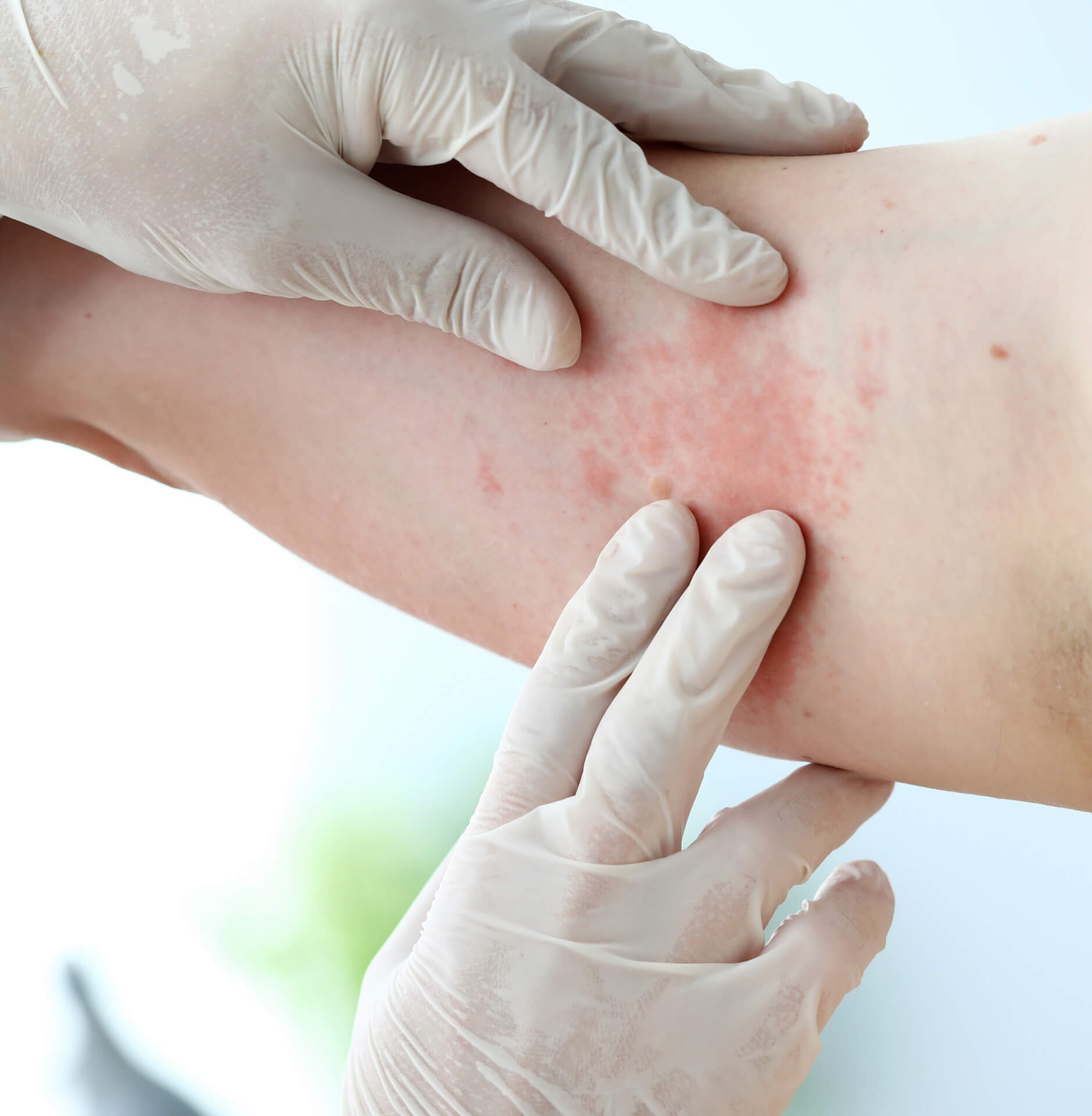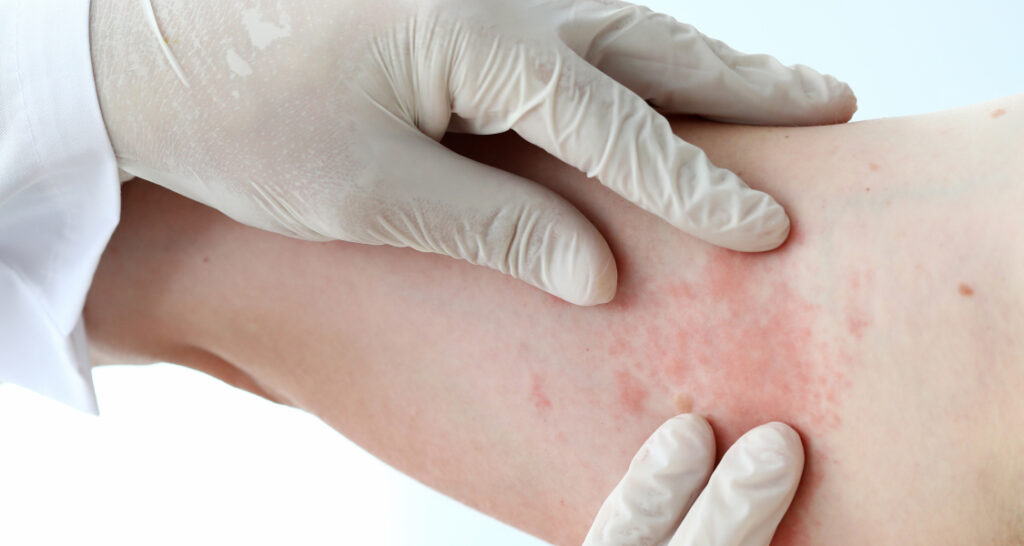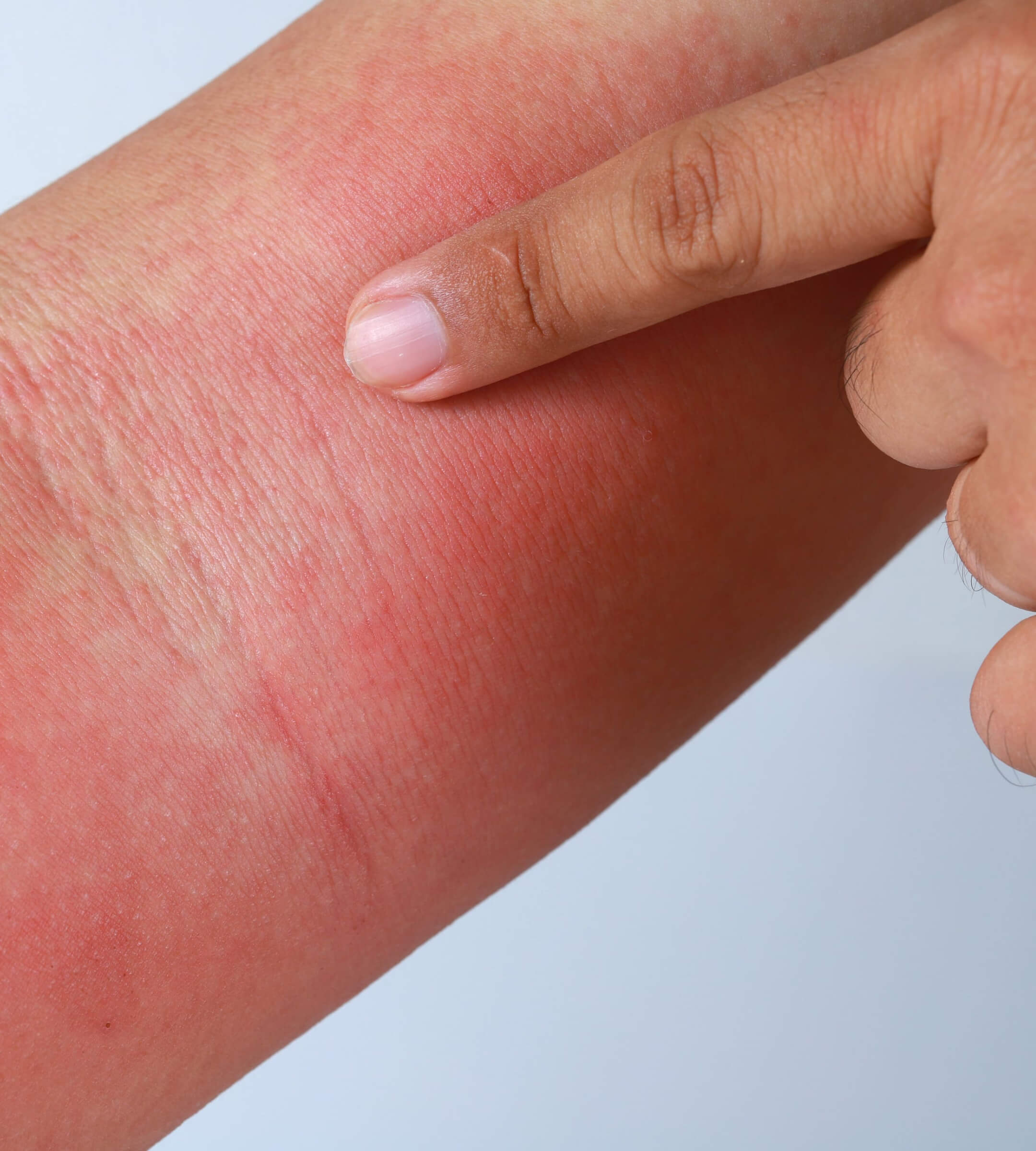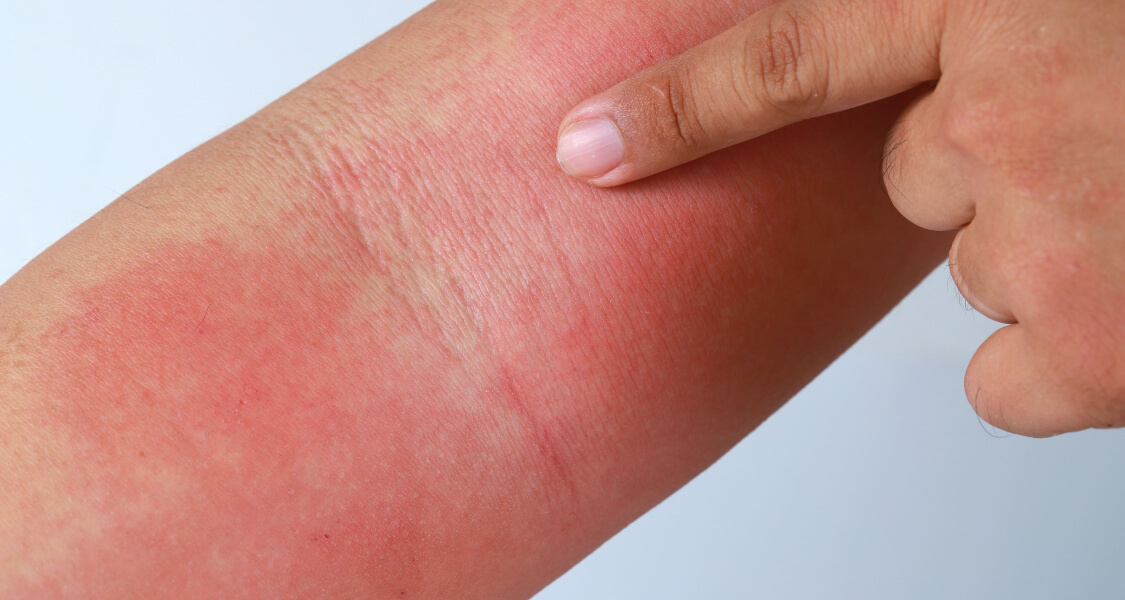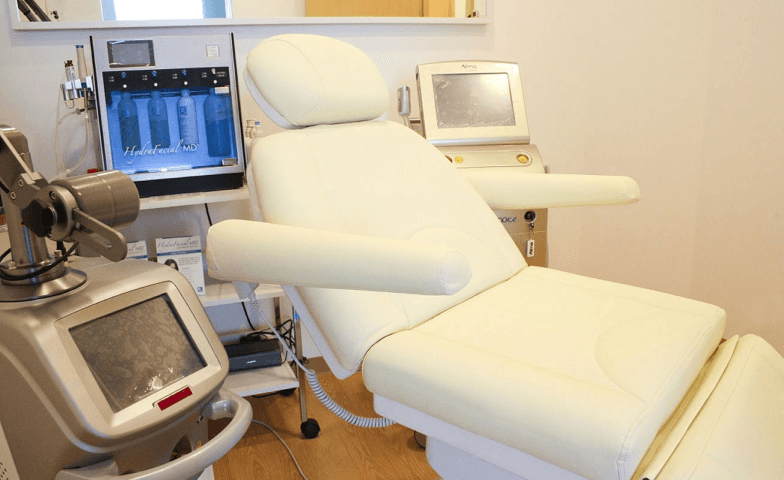Symptoms Of Eczema (Dermatitis)
Itchy skin is almost always a symptom of eczema. Other symptoms of eczema may include:
-
Dryness
Eczema can make your skin very dry, sensitive, and prone to cracking.
-
Rough And Leathery Skin
Constant scratching can lead to rough, thickened skin.
-
Oozing And Crusting Blisters
Blisters that ooze and crust can form in areas where the skin bends (inside your elbow, behind your knees, or on the front of your neck).
-
Inflamed And Discolored Skin
It may appear as a red rash or scaly patches on swollen skin that vary in color depending on your skin color.
